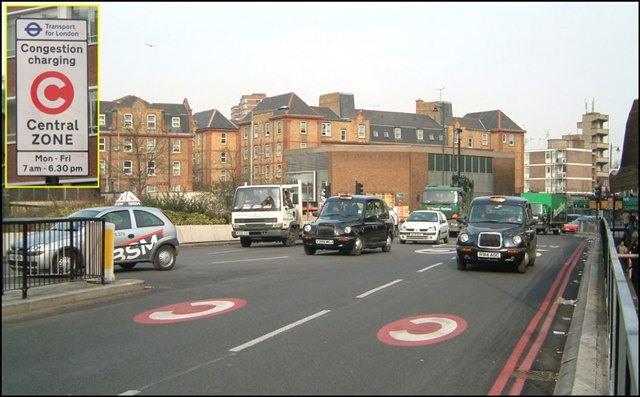Report: Congestion Charges, Highway Tolls, Gaining Popularity In Major Cities
New proposals like a London-style “congestion charge” and highway tolls for special lanes that would move faster are being floated both in Canada and the United States, as major cities grapple with traffic problems and infrastructure that wasn’t meant to deal with an increasing number of cars.
An article in the Chicago Tribune details how a government-sponsored panel concluded that new strategies, involving tolls on key expressways, involving fees on certain lanes during peak demand periods, may be necessary to discourage cars from driving into the city, and collect revenue from drivers willing to pay a premium to for the privilege of driving.
Minneapolis and Orange County, California have both implemented similar schemes, while Toronto, Canada’s largest city, with a population of 5.6 million people is also debating the whether to enact road tolls to discourage drivers in the downtown core.
The key element in all of this is public transit. Toronto has a fairly comprehensive system, that is expensive and fault, but the choice of many due to convenience, and the high costs of owning a car. London’s charge is similarly successful, by making those who can afford it pay the charge, while most people who wouldn’t have driven previously continue to take the subway.
[Source: Chicago Tribune]
More by Derek Kreindler
































Comments
Join the conversation
Not sure I agree with your headline. After London introduced it, the experiences there ensured that both Edinburgh and Manchester (other British cities) overwhelmingly rejected the imposition of such a tax in local referenda. I attended meetings in both cities and was struck how the public were unpersuaded by the vast propaganda campaign waged by government spending millions to browbeat them into supporting the new taxes. The charge in London has doubled at a time when other prices in the private sector have actually fallen, the fining system was the only thing that ensured a small "profit" for the first years (and it was a grossly unfair system), and the costs are enormous. And guess what? There is no real proof that it has actually lessened "congestion" or increased road speeds. Studies by government say one thing, private studies say another. oh, and after the introduction, business dropped substantially in the zone (while increasing outside of it). Think carefully...